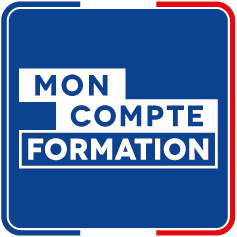The + of training
- Interdisciplinary approach
- Active teaching combining lectures, seminars, and practical application
- Excellence in education
- A network of international partners for exchange programs in Europe (EuMigs network) and outside Europe
Go to content Navigation Direct access Intranet/ENT



The Master program in Migration Studies focuses on a crucial issue in today’s world: the impact of migration and diversity on contemporary societies. The movement of people, ideas and practices and the growing diversification of societies have had very significant effects on legislations, on public policies as well as on individual and collective social experiences.
The programs benefit from an important tradition of research in the history and sociology of migration in Nice, a cosmopolitan border city, as well as from a rich professional and associative environment connected to migration.
The program combines a strengthening of the knowledge and tools of political science at the M1 level, with a multidisciplinary approach (law, political science, and social sciences) and international perspective on migration during the M2 year. In France, this is the only M2 level Master in Migration Studies taught in English.
This program is based on active pedagogy and hands-on methodologies combining lectures, seminars and practical applications with an aim at acquiring skills to conduct empirical research, to produce and promote rigorous analyses and to lead and carry out projects in either public, international or nonstate organizations.
The Master in Migration Studies is an excellent training preparing for careers in international and European organizations, local, national, and international administrations, NGOs and the media.

Formation accessible aux personnes en situation de handicap.
Consultez le site Mission Handicap

Cette offre de formation est éligible à MON COMPTE FORMATION
moncompteformation.gouv.fr
ERMES (Research Team on the Mutations of Europe and its Societies, linked to the Department of Political Science) brings together political scientists, public law specialists and legal historians, who question the construction and transformation of territories and political identities, and the evolutions of the European political and legal space, especially in relation to migration processes.
LADIE (Research Center in International and European Law) focuses on migrants and refugees’ rights, international humanitarian law, human rights law, security issues, the fight against transnational crime, the Common Foreign and Security Policy of the European Union, EU immigration policy. It took part in several European projects, including an INTERREG program funded by the European Union on “The EU and the Law of Migrants and Refugees”, in collaboration with the Institute of International Humanitarian Law of San Remo-Geneva (2008-2012).
URMIS (Migrations and Society Research Unit, linked to the Department of Sociology), was one of the first research centers in France to develop social science approaches to migrations and interethnic relations. It is a joint research center of the University of Nice, the University of Paris Diderot, the Institut de recherche pour le développement (IRD) and the Centre national de la recherche scientifique (CNRS). URMIS brings together researchers from various disciplines and is a unique space for debate and comparison, while also sharing a common theoretical understanding of national, ethnic and racial groups as social constructions.
Training(s) required (diplomas recommended or preferred):
The requirements are the same for national and international students.
• Admission to M1 (first year): Bachelor's degree in political science. Level C1 in French; B2 level in English.
• Admission to M2 (second year): One year of post-graduate studies in political science (or social sciences related to migration or the political), or Bachelor's degree + professional experience in the fields of migration.
Level C1 in English (no level required in French).
Applications are to be completed online on the web platform: https://univ-cotedazur.fr/formation/candidater-et-s-inscrire
Depending on your country of citizenship/residence, you may have to apply through Campus France : here is the list of countries affected
If you are not affected by Campus France, application modalities are the same as for national students : Mon Master for admission in the first year, ECandidat to apply for the second year.
Find out more about your eligibility for the France Excellence Eiffel scholarship.
Semesters 1 & 2 offer in-depth training in political science. These courses, taught in French, are shared with the Master's EPAP program (Expertise du politique et action publique). They aim to consolidate skills in the major fields of the discipline: political sociology, public policy, comparative politics, methods, etc. These are explored from the local to the international level.
The M1 offers a first specialization in the field of migration through multidisciplinary courses taught in French and English, and through the research dissertation. The dissertation is a first experience in conducting empirical surveys and managing independent projects. Students are encouraged to focus their dissertations on subjects related to migration in Nice and the Alpes-Maritimes region (different waves of migration, border practices, associative actions, etc.). The annual "Introduction to Migration Studies" cycle also supports the exploration of these themes. Finally, the two "Switch" courses chosen can be used to explore related topics (among the options: Migrating through the ages, Gender and inequalities...).
The English module allow you to prepare for the transition to English courses in M2.
Semesters 3 & 4 offer in-depth training entirely focused on migration issues. All courses are taught in English. The M2 addresses migration-related topics through disciplinary courses and interdisciplinary thematic seminars. Students will acquire methodological skills in research, data production and analysis. They will develop skills in leading and carrying out professional projects through dedicated training courses and experiences.
Both courses and seminars rely on the active participation of students. Hence, the assessment methods are based on assignments during terms or final individual works.
UE - Action publique et politique
Inégalités, redistribution, lutte contre les discriminations (CM+TD)
Introduction to Migration Studies 1 (TD)
- Introduction to Migration Law
- Introduction to Border Studies
- Migrations and Political Mobilizations)
UE - Institutions politiques
Politique comparée : États et systèmes politiques dans les Suds (CM+TD)
Anglais appliqué au politique 1 (TD)
UE - Construire une recherche en sciences sociales
Méthodes de l'enquête et analyses de données (CM)
Construire un mémoire en Science politique (CM)
UE - « Switch »
Un cours à choisir au sein de l’EUR Odyssee (sciences sociales et sciences de l’environnement)
Master Migrations : https://www.francecompetences.fr/recherche/rncp/36848/
Local authorities (cabinet jobs or civil service) and their cooperation establishments (intercommunalités, Pays)
Para-public organizations (development agencies, urban planning agencies, resource centers, territorial observatories), territorial operators (social housing organizations)
Public structures and independent administrative authorities
Private consulting sector
Education, research
Type of jobs available :
- Research and advocacy officer for international (UNHCR, IOM, etc.) and national organizations (CIMADE, etc.)
Tuition fees for non-UE students are about 4000€ / year.
Please consult : Tuition fees















